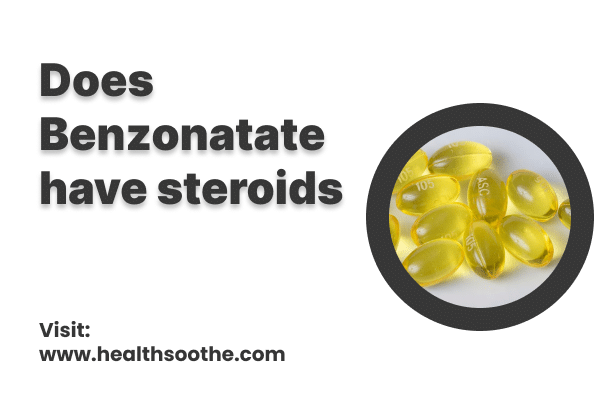Benzonatate serves as an oral medication utilized for alleviating and suppressing cough in individuals aged ten and above. At present, it stands as the lone non-narcotic antitussive offered as a prescribed medication. Its mechanism involves diminishing the cough reflex activity by desensitizing lung and pleura tissues implicated in the reflex. Initially authorized by the FDA in 1958 under the brand name Tessalon Perles, benzonatate bears resemblance to anesthetic agents within the para-amino-benzoic acid category (like procaine and tetracaine), thus displaying numbing properties. While it is not particularly prone to misuse or abuse, benzonatate does pose a risk of severe toxicity and overdose, particularly among children.
Key Facts: Benzonatate & Steroids
▪️Not a Steroid Medication
Benzonatate is a non‑narcotic antitussive (cough suppressant), not a corticosteroid or steroid derivative .
▪️Mechanism of Action
Works by numbing lung and airway stretch receptors and reducing the cough reflex, akin to local anesthetics like procaine and tetracaine .
▪️Rapid Onset, Moderate Duration
Relief typically begins in 15–20 minutes and lasts 3–8 hours .
▪️Age & Safety Considerations
Approved for patients 10 years and older; accidental ingestion in young children can cause serious toxicity or death .
▪️Route & Administration
Comes in 100 mg, 150 mg, and 200 mg capsules—all require swallowing whole; chewing or sucking can numb the mouth and throat dangerously .
Side Effects to Know
Common: drowsiness, dizziness, headache, nausea, constipation. Rare: hallucinations, allergic reactions, seizures, cardiac arrest—mostly from misuse or overdose .
No Known Steroid or Drug Interactions
Does not interact with steroids or antibiotics, but may increase drowsiness when combined with other CNS depressants (opioids, alcohol, sedatives) .
How to use Benzonatate
Consume this medication orally with or without food as instructed by your physician, typically three times daily as necessary.
Ingest the medication whole; avoid chewing, sucking, or dissolving it in your mouth. These actions could lead to loss of sensation in your mouth/throat and may trigger choking or a severe allergic reaction. Refrain from eating or drinking until the numbness subsides. Seek immediate medical attention if the numbness persists or worsens.
The prescribed dosage depends on your medical condition and response to treatment. Do not exceed the recommended dosage, as doing so will not expedite relief from coughing but may instead result in serious side effects.





